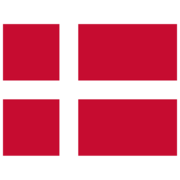Law subject related
The Bookkeeping Act requires businesses to adopt either certified digital bookkeeping software approved by the Erhvervsstyrelsen (ERST, the Danish Business Authority) or develop custom solutions that comply with the law. This comprehensive digital shift includes all accounting activities, with a specific emphasis on invoicing.
To facilitate this transition, B2B e-invoicing has become mandatory. Companies can choose to use the public NemHandel platform or the Peppol network for their invoicing needs. Invoices must adhere to the Peppol BIS 3.0 (EN16931-compliant) standard or the local OIOUBL format, which is set to receive a 3.0 update to ensure compliance with EN16931, albeit delayed by six months.
The first phase of the Bookkeeping Act took effect on July 1, 2024, impacting all companies currently required to submit an annual report under the Annual Accounts Act, specifically medium and large enterprises already using certified bookkeeping systems. From this date, these companies must ensure all accounting processes, including invoicing, are conducted digitally, starting from the first day of their next financial year.
The subsequent implementation phases are scheduled as follows:
January 1, 2025: The Act will extend to all companies required to submit an annual report under the Annual Accounts Act that use self-developed software.
January 1, 2026: The Act will apply to personally owned companies with an annual net turnover exceeding DKK 300,000 for two consecutive years (e.g., 2024 and 2025).
No additional phases are planned, meaning very small companies remain outside the scope of the Bookkeeping Act.
Other news from Denmark
Denmark’s Economic Council Rejects Lower VAT on Groceries
 Denmark
Author: Ivana Picajkić
Denmark
Author: Ivana Picajkić
Denmark’s Economic Council advises against lowering VAT on food, citing high costs, management difficulties, and minimal benefits for needy households. They recommend direct financial support for low-income families and subsidies for healthy food instead, emphasizing the simplicity of Denmark’s current single VAT rate of 25%. Denmark’s top economic advisers have warned against lowering VAT o... Read more



Denmark Introduced New Coins Featuring the Current Monarch
 Denmark
Author: Ivana Picajkić
Denmark
Author: Ivana Picajkić
Denmark introduced redesigned coins on December 2, 2025, featuring King Frederik X through updated portraits and monograms, along with a new symbol inspired by the octagonal layout of Amalienborg Palace Square. The new designs apply to the 20-, 10-, 5-, 2-, and 1-krone coins, while all existing coins remain legal tender and continue to circulate. Danmarks Nationalbank introduced new Danish coins i... Read more



What’s Changing in Denmark: New E-Invoicing, SAF-T 2.0, and ViDA Requirements
 Denmark
Author: Ivana Picajkić
Denmark
Author: Ivana Picajkić
Denmark, like many EU countries, is gearing up for major regulatory changes such as VAT in the Digital Age (ViDA). The country is moving toward a more automated digital economy by updating its e-invoicing standards, strengthening digital bookkeeping rules, and aligning national systems with future EU requirements . Modernising e-Invoicing standards Denmark is updating its national docume... Read more



Denmark Announces New Nemhandelsregister Update
 Denmark
Author: Ivana Picajkić
Denmark
Author: Ivana Picajkić
Denmark has announced a new Nemhandelsregister (NHR) update—covering NHR Core, API, SMP, and PoRS—bringing stability, security enhancements, and a key fix ensuring the validator now correctly handles overlapping profiles. The release, deployed to demo on 19 November and expected in production on 26 November 2025, may cause brief disruptions but requires no actions from market participants. The Dan... Read more



Denmark Releases Updated OIOUBL Schematron
 Denmark
Author: Ivana Picajkić
Denmark
Author: Ivana Picajkić
The Danish Business Authority released OIOUBL 2.1 schematron version 1.16.0, enhancing e-invoice data quality with CO2 data checks and stricter currency code controls. Implementation is required by November 27, 2025. The Danish Business Authority has released version 1.16.0 of the OIOUBL 2.1 schematron as a final version. The update is minor and focuses on improving data quality in e-invoices. Th... Read more



Denmark: Sale of Christmas Calendars is VAT Exempt
 Denmark
Author: Ivana Picajkić
Denmark
Author: Ivana Picajkić
The Danish Tax Council has classified Christmas calendars involving discounts and prize draws as a single, composite service exempt from VAT, treating them as lotteries. Read more
Subscribe to get access to the latest news, documents, webinars and educations.
Already subscriber? Login


Denmark Advances with E-Invoicing and Digital Bookkeeping Plans
 Denmark
Author: Ivana Picajkić
Denmark
Author: Ivana Picajkić
Denmark is advancing its digital transformation by updating e-invoicing standards and strengthening digital bookkeeping rules, including new versions of OIOUBL and SAF-T expected by the end of 2025. Looking ahead to EU ViDA requirements, the country plans higher e-invoice adoption and tighter system integration, positioning Denmark as a leader in automated business transactions Denmark is continui... Read more


